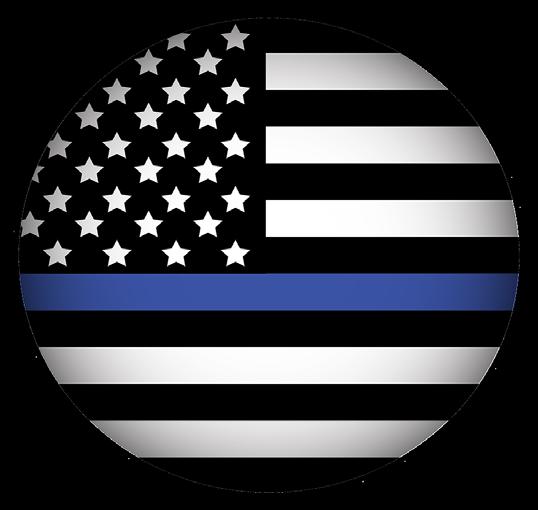
4 minute read
The Stigma of PTSD Treatment
Navy Veteran William Reynolds, PA-C, on Overcoming the Stigma of Seeking PTSD Treatment
Post-traumatic stress
disorder (PTSD) has been with us since the invention of warfare. Fortunately, with advances in mental health care, treating this potentially debilitating condition is highly effective. Yet, even today, there remains significant stigma that poses an obstacle to veterans who might seek treatment. Here, Lt. Cmdr. William Reynolds, USN, (Ret.), PA-C, Director of the Military and First Responder Trauma Recovery Program at Sierra Tucson, shares his views on how to overcome that stigma, along with thoughts about treatment options and words of hope.
What’s your background in the military?
I’m a 30-year veteran, spending that entire time in Navy medicine. I served on an aircraft carrier and on fast attack submarines. I spent a lot of time with the U.S. Marine Corps and served as a medical officer for a Navy SEAL team.
My toughest deployment was in Iraq, when I was stationed with a mobile surgical company – just like the MASH unit from the old TV show. We received injured Marines around the clock for seven months. That’s where I became interested in trauma treatment.
I actually sent myself to treatment for alcohol misuse and knew that I wanted to do psych work with veterans. I found that getting sober was instrumental in helping me heal from my own PTS symptoms.
You refer to PTSD as PTS. What is the difference and why is it important?
PTSD is a diagnostic code that the healthcare industry uses, but I think the word “disorder” in PTSD stigmatizes a very normal, human response to abnormal situations. It’s really hard for anybody to raise their hand and say, “Hey, I’m an alcoholic.” Or, “I use heroin and have trauma, and I want to go into treatment.” For veterans there’s already a huge stigma in asking for help of any kind, because it goes against everything we were ever taught. And when you call trauma a disorder, you’re further stigmatizing the condition. We want to remove all barriers for people seeking treatment.
How can veterans recognize the mental health warning signs of PTS?
People with PTS often self-medicate, so the condition shows up most commonly as substance misuse, such as increased drinking or drug use. PTS can also show up as other addictive behaviors around social media, food, sex or any other way to tune out.
Many veterans talk about having unsettled memories from when they were deployed. Classic PTS symptoms include nightmares; hypervigilance, which is always being super aware of your surroundings; elevated anxiety; having an easy startle reflex, and flashbacks. Sometimes PTS will show up subtly as just increased irritability and depression.
How can veterans overcome the stigma of seeking treatment for PTS?
I think the military is doing its best to encourage servicemembers and veterans to seek treatment – and it’s great when that encouragement comes from upper leadership. It’s even better when it comes from the officer you report directly to.
Peer support also can have a huge impact. Seeing someone your own age who’s gotten sober or has gone to treatment for PTS and is living well in recovery – I don’t think there’s anything more powerful.

There’s a term called “emotional sobriety.” In substance misuse, for example, the key is finding an inner peace, an inner contentment that you are truly okay with being sober. When someone begins to embrace a life of truly being sober and is joyful about their recovery, that’s emotional sobriety. So, when somebody feels like they’re in good balance and they’re not drinking and don’t have that secret voice telling them that they can drink again someday – that’s how you know you’re in recovery.
The same thing can be said for those with PTS. Some people continue to struggle with PTS symptoms for the rest of their lives, and others are at least able to mitigate the symptoms to the point that they aren’t bothersome. The goal of treatment for anyone who has PTS is to get them functioning in a healthier manner and where their symptoms are manageable and under good control.
Do you have any words of hope for veterans struggling today with PTS?
I would like everyone to know that recovery is possible. You do not have to live with PTS symptoms. You do not have to live with substance misuse or internet addiction or a sexual addiction. I realize it takes tremendous courage to ask for help, but help for veterans and military personnel is available.
If one good thing has come out of the COVID pandemic, it’s that it has normalized telehealth. So, even people who live in remote or rural areas can go to virtual AA meetings or see therapists online. It’s not the same as in-person therapy, but if you’re in a remote situation, it’s an option that wasn’t as widely available before 2020. I’d also encourage veterans to visit the National Center for PTSD website. (www.ptsd.va.gov) It offers a ton of resources on how to get help.

Lt. Cmdr. William Reynolds, USN, (Ret.), PA-C, is Director of the Military and First Responder Trauma Recovery Program at Arizona-based mental health treatment facility Sierra Tucson.
For more information, visit:
www.sierratucson.com/programs/military/

WOUNDS WE CANNOT SEE
Post Traumatic Stress Disorder does not always allow the affected to seek help. Lend a hand and provide them with methods of help, listen and be a friend.
Homeland Magazine works with nonprofit veteran organizations that help more than 1 million veterans in life-changing ways each year.
Resources.
Support. Inspiration.
At Homneland Magazine you can visit our website for all current and past articles relating to PTSD, symptoms, resources and real stories of inspiration.










